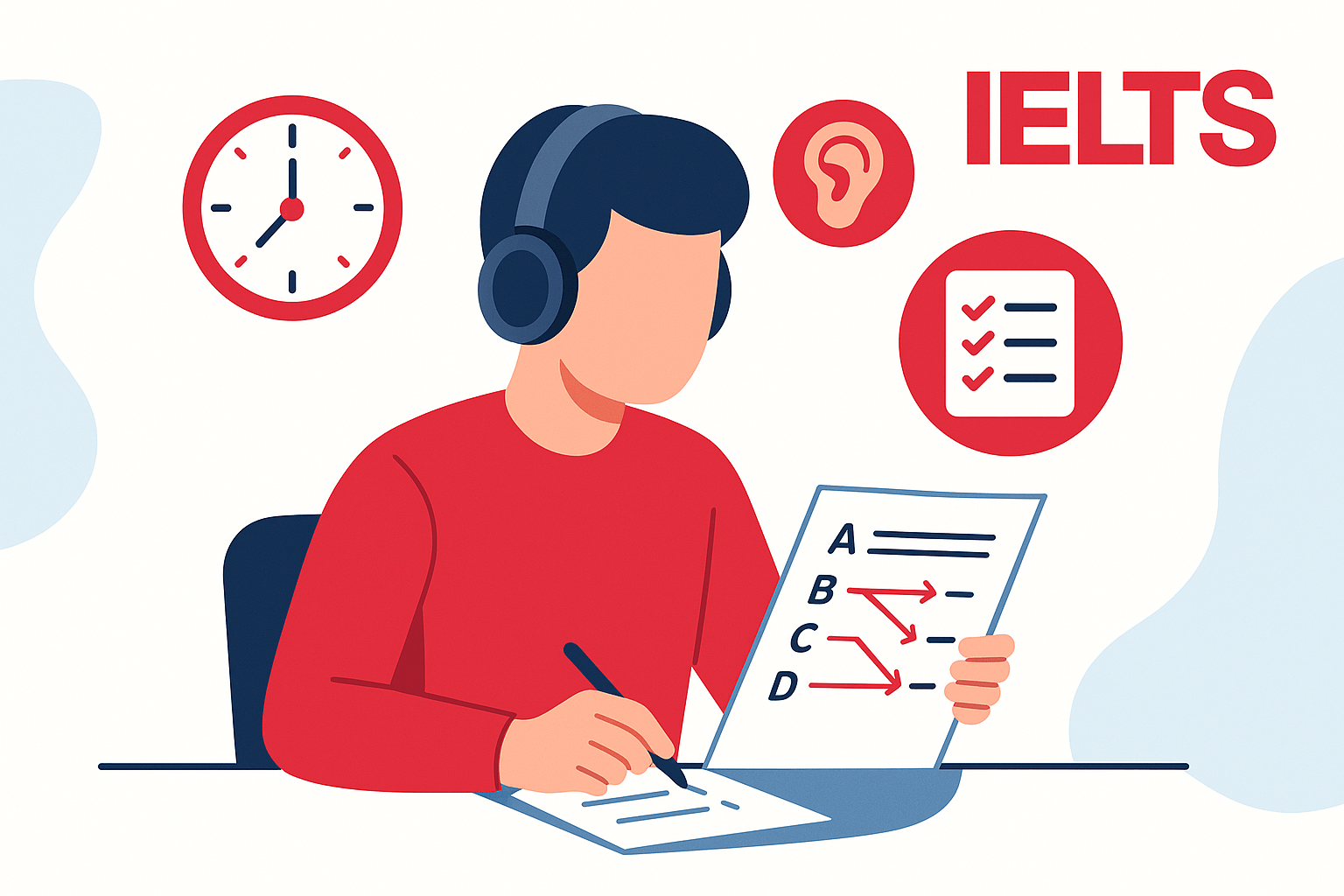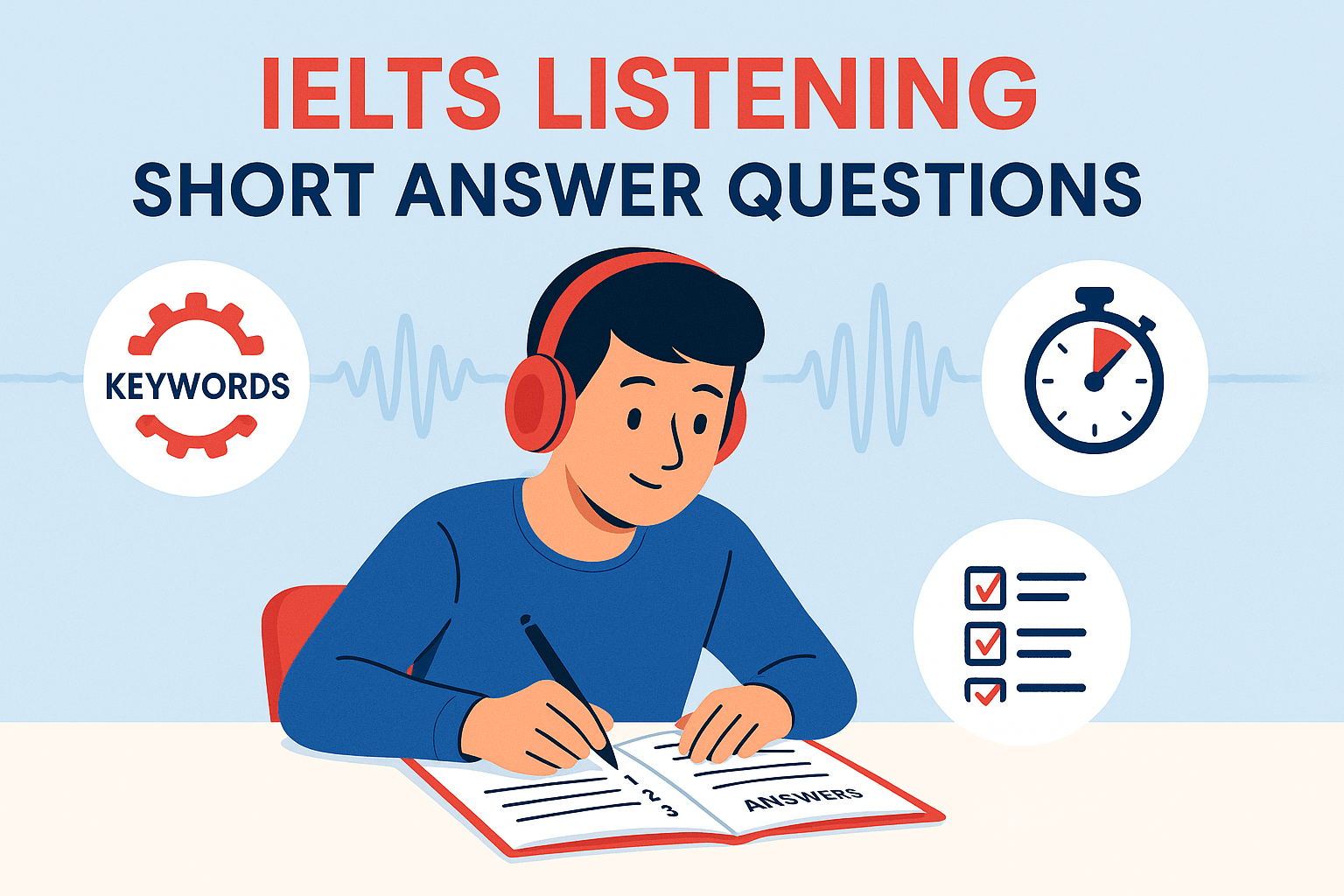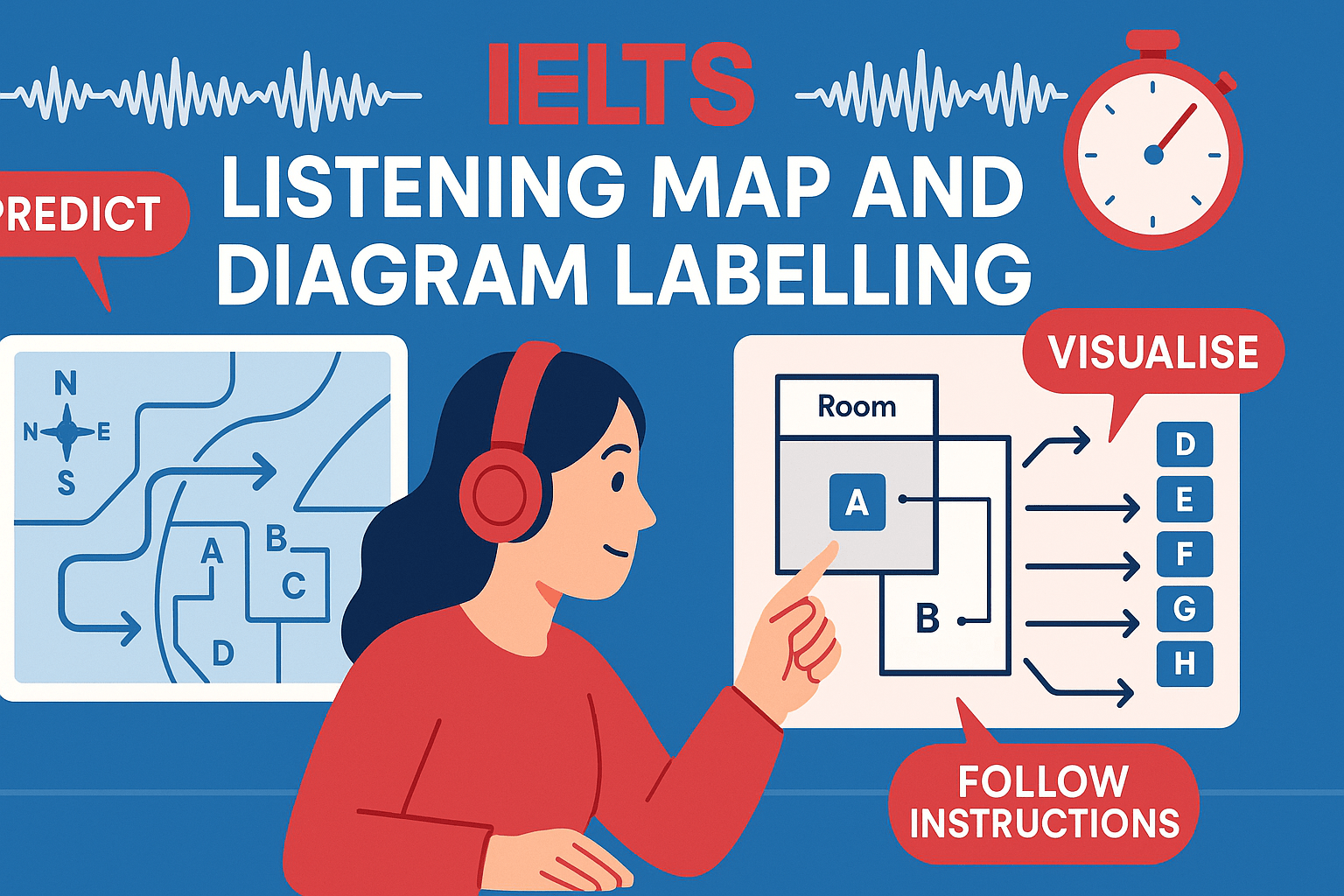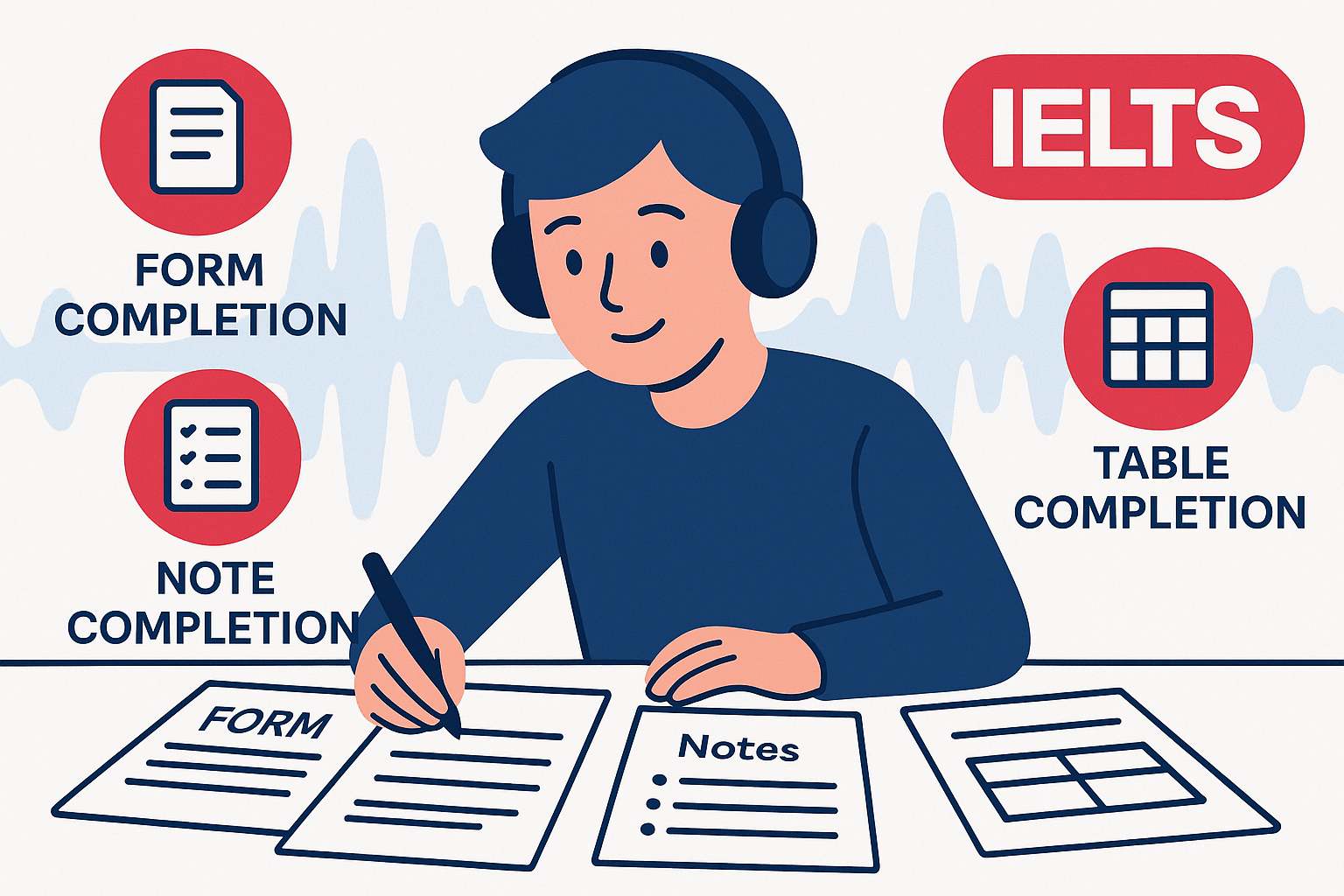When preparing for the IELTS Listening test, many of my students tell me that IELTS Listening Matching Type Questions are among the trickiest. These questions require strong focus, quick thinking, and careful note-taking. Over the years of teaching learners worldwide, I’ve noticed that even high-level candidates often lose marks here—not because they don’t understand the recording, but because they miss small details or get confused by distractors.
In this guide, I’ll share the best approaches I use in my classes, along with common problems I’ve seen and how to solve them. By the end, you’ll know exactly how to approach matching questions with confidence and accuracy.
What Are Matching Type Questions in IELTS Listening?
Matching questions ask you to connect items from two lists. For example, you may hear a speaker describe different people, and you’ll need to match them to jobs, hobbies, or opinions. The challenge is that the options often sound similar, and test-takers must stay focused to avoid being tricked.
👉 If you’d like a complete overview of all IELTS Listening tasks, I recommend checking my detailed IELTS Listening Question Types Guide.
Why Students Struggle with Matching Questions
Over the years, I’ve identified three main problems students face:
- Similar-sounding options – For example, “likes music” and “plays in a band” can both appear in the same task. Students often pick the wrong one.
- Information overload – The recording can include more details than you actually need, which confuses learners.
- Speed and distraction – Students often panic when they hear extra information or miss a word.
The good news is that these problems can be solved with the right techniques.
Best Approaches to IELTS Listening Matching Type Questions
1. Predict Before You Listen
Before the recording starts, scan the question and predict what kind of information you will hear. For example, if you’re matching names to hobbies, think of possible synonyms (e.g., “reading books” → “enjoys literature”). This helps you recognise answers more quickly.
2. Listen for Synonyms, Not Exact Words
The IELTS test rarely uses the exact same wording as the question. Instead, they test your ability to understand paraphrases. For example:
- Question: “John likes sport.”
- Recording: “John spends his weekends playing football.”
3. Cross Out Wrong Options
I always encourage my students to eliminate incorrect answers as they listen. If you’re sure an option is wrong, cross it out immediately—this narrows your choices and reduces confusion later.
4. Focus on Order of Information
The information may not be given in the same order as the questions. This means you need to keep track of the sequence and avoid assuming the first answer is always for the first question.
5. Don’t Panic If You Miss One
If you miss an answer, don’t freeze. Move on quickly, because the recording won’t stop or repeat. You can sometimes recover by using logic when reviewing.
For more strategies like these, take a look at my in-depth IELTS Listening for Band 7–9 Guide.
Practice Is the Key
The best way to improve at matching questions is consistent practice. I always tell my students to work with real IELTS-style recordings and review their mistakes carefully. The British Council, IELTS IDP, and official IELTS websites all provide excellent free practice resources.
On my site, you’ll also find a collection of IELTS Listening Practice Tests to help you train under real exam conditions. And if you’d like structured guidance with step-by-step lessons, you might consider joining premium IELTS preparation courses.
Common Mistakes to Avoid
- Choosing the first option that sounds right – Always listen until the end, as the speaker may change their mind.
- Not reading all options carefully – Sometimes the difference is just one word (e.g., “likes history” vs. “studies history”).
- Failing to transfer answers correctly – Remember, spelling counts in IELTS. A wrong spelling is a lost mark.
Final Thoughts
IELTS Listening Matching Type Questions can be tricky, but with the right approach, they can also become one of your strongest areas. As your IELTS teacher, I’ve seen many students go from panicking at these questions to confidently scoring full marks. The secret is practice, prediction, and patience. Stay calm, apply these strategies, and you’ll see your accuracy improve.
FAQs on IELTS Listening Matching Type Questions
Q1: How many matching questions usually appear in IELTS Listening?
Matching questions can appear in any section, but they are most common in Sections 2 and 3. The number varies, but you may see around 4–6 in one set.
Q2: Do the answers come in order?
Not always. Unlike some other question types, the order of information may not match the order of the questions, which makes prediction skills essential.
Q3: Can I hear the same option more than once?
No. Each option is usually used once unless the instructions clearly allow repetition.
Q4: What happens if I spell the answer incorrectly?
Spelling mistakes are marked wrong, even if your choice is correct. Always double-check spelling when transferring answers.
Q5: What’s the best way to practice?
Use authentic practice materials from IELTS official sites, review your errors, and practice under timed conditions.





One Response
Some times its a pain in the ass to read what website owners wrote but this site is very user genial! .